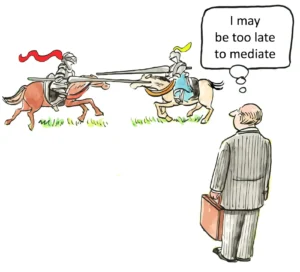The Adjudication Process: A Deep Dive into Judicial Decision-Making
Adjudication plays a central role in the legal system, serving as the formal process by which a judge reviews evidence and argumentation to make a ruling on a dispute. Understanding how legal decisions are adjudicated is crucial for anyone involved in or affected by the law. This article explores the procedural nuances of adjudication, the roles of those involved, and the impact of these proceedings on the administration of justice.
Adjudication refers to the legal process by which an arbiter or judge reviews evidence and arguments to resolve a dispute and determine the rights and obligations of the parties involved. This process is fundamental to the judicial system, ensuring that disputes are settled fairly and according to the law. Whether it involves civil, criminal, or administrative matters, adjudication seeks to achieve a resolution based on an impartial assessment of the facts presented.
The first step in the adjudication process is the filing of a complaint or petition. This document outlines the petitioner’s case against the respondent and is filed in a court or administrative tribunal. The respondent then has the opportunity to answer the complaint, providing a basis for the dispute to be heard.
Pre-trial proceedings follow, where parties engage in discovery—the exchange of relevant information and evidence. Discovery is designed to eliminate surprises, clarify what the dispute is about, and make the adjudication process more efficient. Parties may also file motions during this phase to resolve or clarify issues before the trial officially begins.
Once in trial, the adjudication process involves several stages, starting with opening statements from both parties. This is followed by the presentation of evidence, which includes witness testimonies, physical evidence, and expert opinions. Each side has the opportunity to present their case and cross-examine the other’s evidence, striving to build a compelling argument for the judge or jury.
The judge plays a critical role in the process of adjudication. They must ensure the proceedings are fair, the legal rules are followed, and that each party has a reasonable opportunity to present their case. In bench trials, where there is no jury, the judge also serves as the trier of fact, determining the credibility of the evidence and applying the law to the facts found.
After both sides have presented their evidence and made their closing arguments, the judge or jury deliberates and makes a decision. The outcome can range from dismissal of the case, an award of damages, or other relief, such as an injunction. The decision, based on how the facts of the case apply to the law, must be articulated clearly, showing the reasoning behind the final verdict.
Adjudication is not only about resolving individual cases but also about maintaining public trust in the legal system. By ensuring that each case is treated with fairness and serious consideration, adjudication upholds the rule of law and reinforces the legitimacy of the judicial system.
For legal professionals, understanding every facet of adjudication is crucial to effectively representing their clients. For others, knowledge of this process can demystify aspects of the law that seem daunting or opaque, providing clarity and insight into how legal rights and responsibilities are determined.
In conclusion, the process of adjudication is a cornerstone of the legal system, crucial for resolving disputes and upholding justice. By carefully analyzing the evidence and applying the law impartially, judges ensure that every party receives a fair trial, and the justice system operates effectively.




















